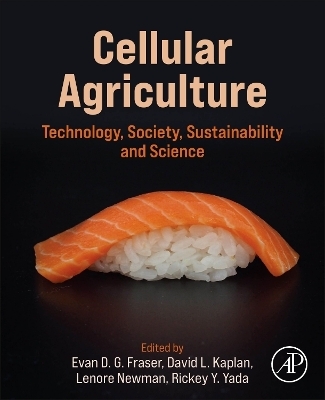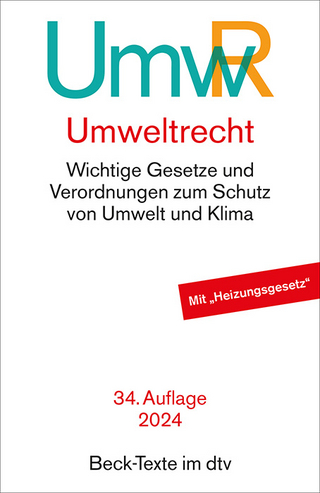
Cellular Agriculture
Academic Press Inc (Verlag)
978-0-443-18767-4 (ISBN)
Evan D. G. Fraser is Director of the Arrell Food Institute at the University of Guelph, co-chair on the Canadian Food Policy Advisory Council, a member of the European Commission’s High-Level Expert Group on food systems science, and one of Canada’s most cited social scientists working on food and sustainability. Between 2010 and 2020 he held a Canada Research Chair in Global Food Security and is the author of approximately 150 academic articles and chapters including co-editing three special features for scholarly journals. Beyond academic publications, Evan strives to communicate his research through accessible platforms including television, radio, social media, lesson plans and courses, educational games, op-eds, and popular science writing. He has co-authored 3 popular non-fiction books about food and food security, including Empires of Food: Feast, Famine and the Rise and Fall of Civilizations that was shortlisted for the James Beard Food Literature Award. David L. Kaplan is Professor and Chair, Department of Biomedical Engineering, at Tufts University, USA. His research focus is on biopolymer engineering to understand structure-function relationships, with emphasis on studies related to self-assembly, biomaterials engineering and functional tissue engineering/regenerative medicine. He has published over 600 peer reviewed papers and edited eight books. Lenore Newman is the Director of the Food and Agriculture Institute at the University of the Fraser Valley, and an Advisor for Cellular Agriculture Canada. She is an associate professor in the Faculty of Science at UFV where she holds a Canada Research Chair in Food Security and Environment. Lenore was a member of the Premier’s Food Security Task Force, sat on the BC Minister of Agriculture’s Advisory Committee on Revitalizing the Agricultural Land Reserve, and regularly speaks to government and community groups. She has published over fifty academic journal articles and book chapters, and her opinion pieces on the future of farmland use and other food-related issues have been published in the Globe and Mail, the Vancouver Sun, and the Georgia Straight. Her first book, Speaking in Cod Tongues, was published to wide acclaim in January 2017 and won a Saskatchewan Book Award. Her second book, Lost Feast, was published by ECW Press in 2019. It was awarded silver in the 2019 Forward INDIES and was the winner of a Canadian Science Writers Award. She holds a PhD in Environmental Studies from Toronto’s York University and lives in Vancouver, Canada. Professor Rickey Yada is Dean of The University of British Columbia, Canada, and specializes in the structure-function relationships of food and non-food related enzymes using molecular biology and various physico-chemical techniques, carbohydrate metabolism as it related to process quality as well as various applications of food-related nanoscale science and technology. Prior to his appointment at UBC, he was a Professor in the Department of Food Science, Chair of the Department of Food Science, Assistant Vice President Research, a Canada Research Chair in Food Protein Structure, the Scientific Director of the Food Institute at the University of Guelph and the Vice Chair of the Canadian Institutes of Health Research, Institute of Nutrition, Metabolism and Diabetes. Prof. Yada is the EiC for Trends in Food Science and Technology (Elsevier Food Science journal), and is on the editorial boards for several journals. He is the author of over 200 refereed journal publications and several book chapters.
Section 1: Introduction
1. Introduction to The foundations of cellular agriculture: science and society
2. Cultivated meat: disruptive technology for sustainable meat production
3. Sustainable food systems, development paths, and scenarios for cellular agriculture
Section 2: A New Frontier for Protein: Novel Approaches and Novel Products
4. Alternative Proteins, Extrusion, and Bioprocessing
5. What should the properties of cultivated meat be?
6. Food Safety of Fermented Proteins and Cultivated Meat and Seafood
Section 3: Tissue Engineering and Cellular Agriculture: State of the Science and Technology
7. Introduction to Cultured Meat and Tissue Engineering
8. Cell Source and Types for Cultivated Meat Production
9. The Science of Stem Cells – and Stem Cell Engineering – for Cellular Agriculture
10. Scaffolds for Cultured Meat: Technological Considerations
11. Engineering Bioreactors
12. Cell Nutrition and Growth Media
13. 3D Bioprinting
14. Cell Fate and Patterning
15. Scientific Issues and Challenges with Production and Refining Edible Oils and Fats
16. Acellular Products from Cells
17. Manufacture of Hybrid Alternative Protein Food Products Using a Combination of Plant-based Ingredients, Fermentation-derived Ingredients and Animal Cells
18. Cultivated Poultry and Seafood: Opportunities and Future Challenges
Section 4: Fermentation- Derived Foods and Cellular Agriculture: State of the Science and Technology
19. Introduction to Fermentation Technologies and Techniques
20. The Role of Bacterial Cellulose in Cellular Agriculture
21. Case Study on Whey Protein from Fermentation
22. Introduction to commercial opportunities, future directions, and novel approaches to fermentation.
Section 5: Cellular Agriculture and Sustainability
23. The Potential for Cellular Agriculture to Help Reach the Sustainable Development Goals
24. Environmental impacts of cellular agriculture
25. Cellular Agriculture in the Circular Economy
26. Cellular Agriculture and Food Security, Nutrition and Public Health
27. The Promise of Cellular Agriculture
Section 6: Social, Legal and Ethical Dimensions
28. The Ethics of Cellular Agriculture
29. Cellular Agriculture and Intellectual Property Law
30. Techno-Economic Assessments of Cellular Agriculture
31. Education and Training
32. The Political Economy of Cellular Agriculture
Section 7: Conclusion
33. Cellular Agriculture and the Future of Food
Glossary of Terms
| Erscheinungsdatum | 25.11.2023 |
|---|---|
| Verlagsort | San Diego |
| Sprache | englisch |
| Maße | 191 x 235 mm |
| Gewicht | 1180 g |
| Themenwelt | Recht / Steuern ► EU / Internationales Recht |
| Recht / Steuern ► Öffentliches Recht ► Umweltrecht | |
| Wirtschaft ► Betriebswirtschaft / Management ► Marketing / Vertrieb | |
| Weitere Fachgebiete ► Land- / Forstwirtschaft / Fischerei | |
| ISBN-10 | 0-443-18767-3 / 0443187673 |
| ISBN-13 | 978-0-443-18767-4 / 9780443187674 |
| Zustand | Neuware |
| Informationen gemäß Produktsicherheitsverordnung (GPSR) | |
| Haben Sie eine Frage zum Produkt? |
aus dem Bereich


